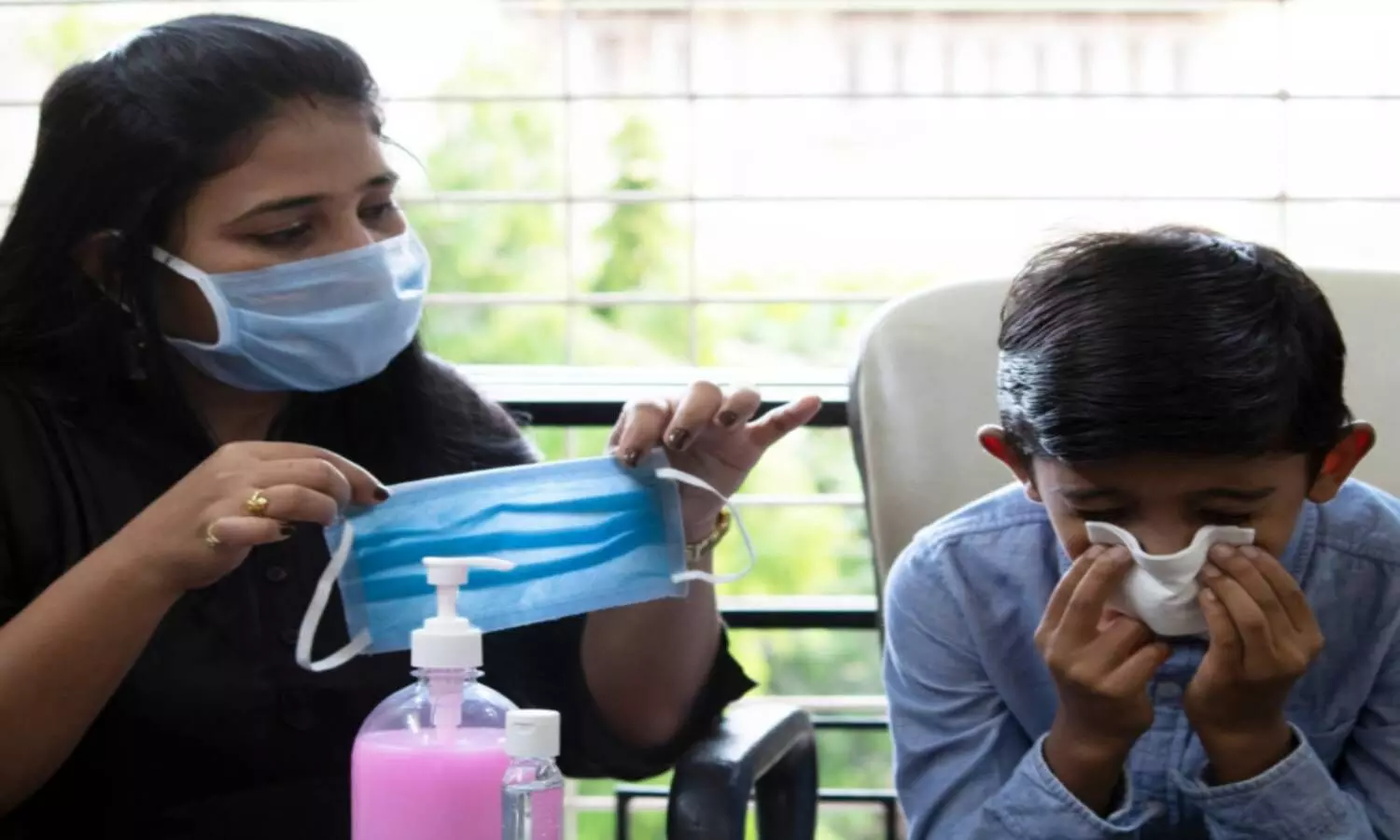Treatment guidelines for COVID positive kids: Here is list of dos and don'ts
Union Ministry of Health has issued clinical guidelines for the treatment of COVID-positive children amid concerns that a possible third wave may target those aged below 18.
By Newsmeter Network
New Delhi: Union Ministry of Health has issued clinical guidelines for the treatment of COVID-positive children amid concerns that a possible third wave may target those aged below 18.
Remdesivir
In a detailed document titled 'Comprehensive Guidelines for Management of COVID-19 in Children', the ministry said antiviral drug Remdesivir is not recommended for children, and steroids should be used to treat only moderately severe and critically ill patients in hospital settings.
"There is a lack of sufficient safety and efficacy data with respect to Remdesivir in children below 18 years of age," the guidelines said.
Steroids
The Director-General Health Services(DGHS) recommended steroids only in hospitalized moderately severe and critically ill Covid-19 cases under strict supervision.
"Steroids are not indicated and are harmful in asymptomatic and mild cases of COVID-19. They are Indicated only in hospitalized moderately severe and critically ill COVID-19 cases under strict supervision. Steroids should be used at the right time, in the right dose, and for the right duration. "Self-medication of steroids must be avoided," the guidelines said.
Indications and recommended dose: Corticosteroids maybe used in rapidly progressive moderate and severe cases.
DGHS has recommended dose of o Dexamethasone 0.15 mg/kg per dose(maximum 6 mg) twice a day or equivalent dose of methylprednisolone maybe used if dexamethasone is unavailable, for 5–14 days depending on clinical assessment on daily basis.
"It must be remembered that steroids prolong viral shedding and hence caution is required in their use," said DGHS.
Use of Masks
Children aged 5 years and under should not be required to wear masks. Children aged 6-11 years may wear a mask depending on the ability of the child to use a mask safely and appropriately under the direct supervision of parents/guardians.
"Children aged 12 years and over should wear a mask under the same conditions as adults. Ensure hands are kept clean with soap and water, or an alcohol-based hand rub while handling masks," the guidelines said.
CT Scan
The guidelines suggested rational use of High-resolution CT (HRCT) to see the extent and nature of lung involvement in patients with Covid-19.
"However, any additional information gained from HRCT scans of the chest often have little impact on treatment decisions, which are based almost entirely on clinical severity and physiological impairment," the guidelines said.
Six-minute walk Test
The government has recommended the use of what it called the '6-Minute Walk Test' on children above 12 to assess "cardio-pulmonary exercise tolerance".
"Attach a pulse oximeter to his/her finger and ask the child to walk in the confines of their room for 6 minutes continuously. Positive test: any drop in saturation < 94%, or absolute drop of more than 3–5% or feeling unwell (lightheaded, short of breath) while performing the test or at end of 6 minutes; Children with a positive 6-minute walk test may progress to become hypoxic and early admission to hospital is recommended (for observation and oxygen supplementation)," the guidelines said.
The test is not recommended for patients with uncontrolled asthma.
For asymptomatic and mild cases
Guidelines said Covid-19 is a viral infection, and antimicrobials have no role in the prevention or treatment of uncomplicated Covid-19 infection.
For asymptomatic and mild cases, the guidelines said antimicrobials are not recommended for therapy or prophylaxis while for moderate and severe cases, antimicrobials should not be prescribed unless there is clinical suspicion of a superadded infection.
Hospital admission increases the risk of healthcare-associated infections with multidrug-resistant organisms.
For asymptomatic infection among children, the guidelines recommended no specific medication and promoted Covid-appropriate behavior (mask, strict hand hygiene, physical distancing) and suggested giving nutritious diet.
The guidelines said that for a mild infection, paracetamol 10-15mg/kg/dose may be given every 4-6 hours for fever and throat soothing agents and warm saline gargles in older children and adolescents have been recommended for cough.
For moderate and severe cases
In the case of moderate infection, the guidelines suggest initiating immediate oxygen therapy.
"Corticosteroids are not required in all children with moderate illness; they may be administered in rapidly progressive disease and anticoagulants may also be indicated," the guidelines said.
For severe Covid-19 among children, the guidelines said if Acute Respiratory Distress Syndrome (ARDS) develops, necessary management to be initiated.
"In case shock develops, necessary management should be initiated. Antimicrobials to be administered if there is evidence/strong suspicion of superadded bacterial infection. May need organ support in case of organ dysfunction, e.g. renal replacement therapy," it said.
The guidelines also recommended a six-minute walk test for children above 12 years under the supervision of parents/guardians.
"It is a simple clinical test to assess cardiopulmonary exercise tolerance and is used to unmask hypoxia. Attach a pulse oximeter to his/her finger and ask the child to walk in the confines of their room for six minutes continuously," it said.